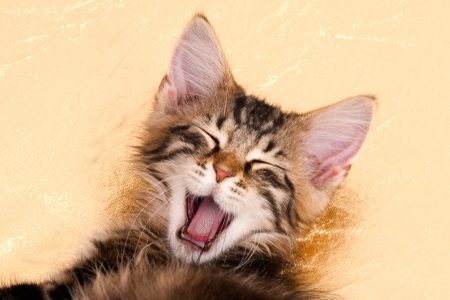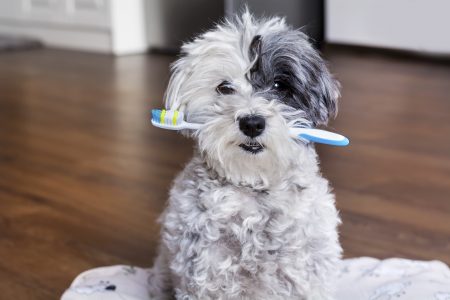Did you know that 85% of pets aged 3 and up have periodontal disease? Dental care is not just a cosmetic consideration, as oral health has a direct impact on overall health. Many liver, kidney, and heart problems can be prevented with proper oral hygiene. Bad breath is often a sign of impending oral problems, however in many pets, the signs of dental problems can be very subtle and easy to miss. That is why we recommend yearly oral exams to identify problems early, and in many cases, a COHAT is recommended.


Animal Dentistry
What is a COHAT?
COHAT stands for Comprehensive Oral Health Assessment and Treatment and includes a thorough assessment of your pet’s mouth under general anesthesia, full-mouth x-rays, and a thorough dental cleaning.
Did you know that teeth are like icebergs? The majority of the tooth is under the gumline, where you cannot see it! Dental x-rays are the only way to know what’s going on under the “water”. You’d be surprised what we find that may be causing your pet pain.
Dr. Buxton has advanced training in dentistry procedures, so rest assured your pet is in good hands!
Schedule your pet’s oral exam today.
Note about Anesthesia Free dental cleanings
You may have heard about “anesthesia free” dental cleaning from your local groomer, pet store or word of mouth. The practice involves scaling of your pet’s teeth without putting them under anesthesia. While it sounds like a nice alternative , it is important to note it has several limitations. A general dental cleaning alone does very little for oral health. The crowns of the teeth are cleaned without treating any conditions below the gum-line. This will only make your pet’s teeth look cleaner and help your pet’s breath smell better temporarily, but will do very little for overall oral health. Pet hygienists are only legally allowed to clean teeth for cosmetic reasons, and are never permitted to clean under the gum line. If your pet has red or bleeding gums, heavy tartar above or below the gum line, loose or wiggly teeth or foul breath, then it is likely he/she will not be a candidate for “anesthesia free ” cleaning.
We all love our pets, and understand the anxiety related to having our pets anesthetized, however the risks of periodontal disease and oral health problems from lack of proper dental care far outweigh any risks of anesthesia.
There are some situations where we do believe an “anesthesia free” cleaning may be of benefit for our patients. We think it can be a good addition to an overall “dental health plan” which combines a yearly cleaning/exam/dental xrays under anesthesia, with daily home brushing and perhaps an “anesthesia free” scaling in the “in between” period. For many pets, this is not an option due to temperament. It is also not an option if your pet has advanced periodontal disease. If you would like to know more, please contact our office and schedule a visit with one of our veterinarians.
Click on the links below to learn more.